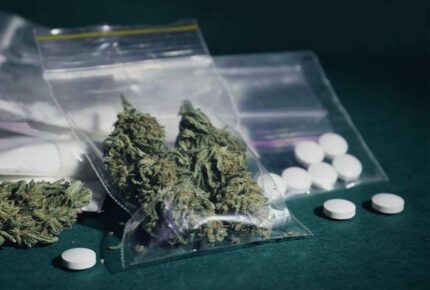

If you are found with a kilo of cocaine on your person in the United Kingdom, you could be facing some serious criminal consequences. Drug possession and dealing is taken very seriously in the UK, and the penalties for getting caught with illegal substances can be severe. If you or someone you care about is facing criminal charges for this quantity of cocaine, you are understandably worried about what might happen next. In this article, we will outline the main offences related to cocaine and what you can expect during the criminal justice process.
Is cocaine an illegal drug in the UK?
In short, yes. The taking, making, carrying, selling, dealing, or sharing (‘supplying’) of cocaine is illegal in the UK, and the legal punishments can be severe.
Possession alone can get you up to seven years behind bars and an unlimited fine, while possession with intent to supply carries up to a life sentence with an unlimited fine. As we will see later, the severity of these punishments depends on the quantity of drugs seized and any aggravating factors such as previous convictions or possession in a public place.
What criminal offences relate to cocaine?
Cocaine is a Class A drug and almost all activities in relation to its production and use are illegal. The Misuse of Drugs Act 1971 is the core piece of legislation aimed at tackling drug offences in the UK. There are numerous offences created by the Misuse of Drugs Act, but the main ones in relation to controlled drugs include:
- possession
- possession with intent to supply
- supplying
- importation
- production
In order for the prosecution to be successful with any drug-related offence, they need to prove in court that:
- the substance in question is a controlled drug
- it was in the defendant’s custody or control, and
- the defendant knew, or could have reasonably known, of the existence of the drug
The exact requirements to be proven then depend on the precise offence charged and the specifics of the case itself.
What is the maximum sentence for possession of Class A drugs in the UK?
The maximum sentence for possession of Class A drugs is seven years behind bars, an unlimited fine, or both.
What is the maximum sentence for supplying Class A drugs in the UK?
For supplying, intent to supply, or possession with the intent to supply Class A drugs in the UK, the maximum sentence is life imprisonment, an unlimited fine, or both.
What punishment do you get for a kilo of cocaine?
Given the above, it is clear that sentences for drug offences can be very harsh. One of the things that contributes to the length of a prison sentence is the level of harm that the drugs did, or potentially could have done. Other factors include whether it was a first-time offence, whether the offence was committed in public, whether vulnerable people were involved, and so on.
For example, if you are caught with one tab of LSD, it is highly likely you are using it personally and not harming anyone else other than yourself. If you are caught with 100 tabs, however, you are probably going to be giving or selling them to someone else.
The same is true for cocaine amounts. According to the Sentencing Council, one kilo of cocaine is considered a ‘large’ amount that is very highly likely to be supplied to other people, rather than used by one person. As such, the level of harm involved is very high, and any resultant sentence will be very serious as a result.
In more formal terms, one kilo of cocaine would fall under Category 2 levels of harm (where Category 1 is the most harmful and most serious). A judge will use this classification in handing down a sentence. This means you are likely to get a harsh sentence, nearly the harshest in fact, for possession or supply of one kilo of cocaine.
With that Category in mind, the judge then decides the level of your role to determine the correct sentence:
- If you played a leading role in the crime, your sentence will be a minimum of 11 years’ custody.
- If you played a significant role in the crime, your sentence will be a minimum of 8 years’ custody.
- If you played a lesser role in the crime, your sentence will be a minimum of 5 years’ custody.
Can you get community service for drug offences?
Class A drug offences are very serious, and the courts do not take them lightly. It is, therefore, only in some very exceptional cases that it may be appropriate for the court to issue a community order instead of a custodial sentence.
Can I be charged with possession if I had nothing on me?
Yes – possession or supply of drugs does not necessarily have to be immediate physical possession. It could involve possession in the sense that you are aware and in control of the drugs, even if they are not physically in your possession.
For example, if someone has asked you to look after their stash of cocaine while they go on holiday, then you are still in possession of that cocaine, even if it is not on your person when the police search you.
How do you prove intent to supply?
The possession of drugs in the UK is relatively straightforward and to prove possession, the prosecution must show that you were aware and had control over them.
Supply, or intent to supply, can be more complex. Nonetheless, it can be proven with evidence as simple as large amounts of cash or scales for measuring drugs. If a person is caught with a large amount of drugs but has no other evidence to suggest the formal offence of intent to supply, then possession with intent to supply as a separate offence will also be difficult to prove.
Here are some of the most common factors the police look at with intent to supply cases:
- Possession of such a large quantity of drugs that mere possession for personal use seems highly unlikely
- The presence of pure or unprocessed drugs
- The presence of drug related equipment, such as plastic bags, scales, or burner phones
- Evidence that preparation for sale has commenced, such as the cutting of drugs into portions or doses, placement in tin foil or plastic bags, etc.
- Any written evidence, such as customers’ phone numbers, lists of drug debts, and so on
- The offender being found with many different types of drugs
- The presence of large amounts of cash, drugs, or luxury items suggesting the individual lives a particularly lavish lifestyle without there being another explanation
- How long can police hold you for drugs?
- As with the majority of other offences, the police can only hold you for 24 hours before they either have to charge you or release you under investigation. In very serious cases, the police may be able to get an extension and hold you for up to 96 hours.
If you are released under investigation, there is no strict time limit on how long the police have to investigate your case and make a decision as to whether to charge you. It could be days, weeks, or even months before you hear anything back.
Being released under investigation gives the police the chance to investigate your case further, and it can be a worrying time as you await their decision.
If the police do decide to charge you for possession, supply, or any other drug offence, then you will find out when the police either call you back to the station to charge you, or when they send you a charge sheet. Note that the charge sheet will not detail any evidence that the police hold against you; it will simply say what you stand accused of and it will give you details of where and when you need to attend court.
If you think this might happen to you, it is important that you seek legal advice from an experienced criminal defence solicitor who can help guide and advise you. They might even be able to get your case dropped before it gets to trial!
Where to get help with drug offences?
Being arrested or charged for a drug-related offence is highly stressful and you are likely concerned about the impact that it may have on your personal and professional life. And, while tens of thousands of people are caught for drug offences in the UK each year, that fact doesn’t really provide much comfort. What will provide comfort, however, is knowing that you have experienced representation on your side that will fight for the best outcome in your case. Get in touch with the experts at Stuart Miller Solicitors today for a free consultation to discuss your options.
OUR COMMITMENTS TO YOU:
-
Responsive
A legal expert will consult you within 24 hours of making an enquiry.
-
Empathetic
We will always treat you with trust, understanding and respect.
-
Specialised
Your case will be handled by an expert who specialises in your type of offence.
-
Proactive
We will take early action to end proceedings as soon as it is practically and legally possible to do so.
-
Engaged
You will be kept updated on your case at all times. We will provide a named contact available to answer your questions.
-
Caring
We understand this is a difficult and stressful time for you and your family. Our team will support you every step of the way.
-
Tenacious
We will never give up on your case. We fight tirelessly to get you the best possible outcome.

